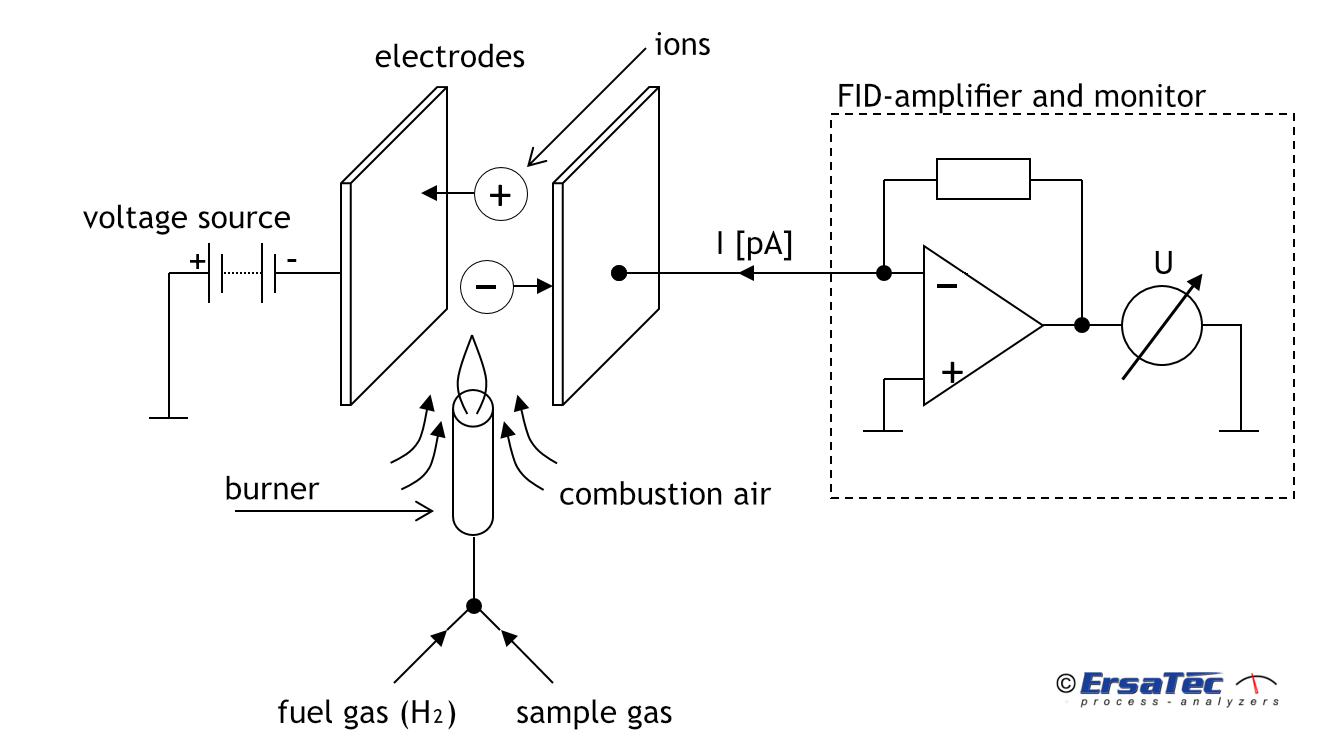The FID-principle
Flame Ionization Detectors (FID) are known to be reliable and robust analyzers in the domain of volatile organic compounds (VOC) analysis.
In the measurement process the gas sample is continuously taken into the FID via a heated sample drawing. There the gas sample is burned up in a hydrogen diffusion flame. If the sample gas contains VOC the organic compounds will be cracked up in the combustion process when getting into the flame. This produces CH fragments that react with atomic oxygen so that CHO ions are generated. These ions are stripped in an electric field and a small electrical current is generated which is proportional to the amount of fed VOCs.

FIDs are the preferred instrument to continuously monitor exhaust air purification plants according to Germany’s “Bundesimmisionsschutzgesetz” (law of immission control). Beyond that, mobile units are used by TÜV (German Technical Inspection Authority ) and other accredited monitoring executives as indispensable analyzers. Alternative measuring methods are samples with specific capillary tubes which have to be analyzed afterwards. This procedure, however only allows a snapshot which means that dynamic processes (e.g. the start-up and shut-down process of exhaust air purification plants) or long range monitoring is not possible. You will retrieve more information by using our contactform.
